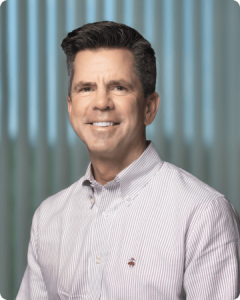One size doesn’t fit all when it comes to student learning, and the same is true for the universal education savings account (ESA) programs that nine states adopted this past year.
Some, like Iowa’s, are limited and for that reason, easy to administrate. All students receive the same amount of money from the state, and all must be enrolled at accredited private schools. Tuition and fees must be paid before money can be spent on anything else. Leftover money, if any, may be spent on textbooks, tutoring, cognitive skills training, testing fees, college admission exams, tuition and fees for private online learning programs, educational services and therapies, and vocational and life skills education. This list is much more restrictive than most states with ESAs.

Robert Enlow, president and CEO of EdChoice
“It’s an ESA in name, but Iowa is essentially a voucher program that uses ESAs as a mechanism,” said Robert Enlow, president and CEO of EdChoice, a national nonprofit education choice advocacy organization. Iowa’s program is also being phased in over three years, with income limits during the first two years.
On the other end of the spectrum are open-ended states like Arizona, where parents are free to allocate their scholarships for a wide range of uses, and students have the option to attend multiple schools, no school at all, or a broad spectrum of customized options in between.
Then, there’s Florida. It’s complicated.
Since universal eligibility became law in March, more than 400,000 students have been awarded ESAs. Roughly 350,000 students are using them. That’s more ESAs than in every state in the nation combined. It’s also the product of two decades of continuous growth of scholarship programs that started small and targeted, but gradually grew to serve more students with broader eligibility.
The Sunshine State now offers multiple scholarship programs that are funded by different sources. The amount of money each student gets varies based on where his or her family lives. There are 402 different scholarship amounts for the three largest programs. Students with unique abilities are allowed more spending flexibility for goods and services to accommodate their special needs. Other students have varying degrees of flexibility depending on which program they use.
Verifying family information is also a bigger challenge in the Sunshine State.
Unlike Iowa, Florida has no state income tax and accompanying records to verify families' incomes, residency and household size, which slows the approval process and makes it more difficult to automate. Scholarship organizations in Florida must receive and verify documents from families to verify this information, in addition to unique abilities classifications.
Also, unlike Iowa, Florida’s ESA program allows some families to forgo full-time enrollment at brick-and-mortar schools and opt for a mix-and-match of services to create customized education plans for their children. Iowa also does not allow families to purchase approved items out of pocket and then be reimbursed. Florida requires scholarship organizations to do so. Last year Step Up received on a average between 10,000 and 20,000 reimbursement requests per week and processed them on average in about two weeks.
The result for Florida: richer benefits for families but more administrative challenges.

John Kirtley, chairman of Step Up For Students
John Kirtley, chairman of Step Up For Students, which administrates most of Florida’s K-12 education scholarship programs and hosts this blog, offered some advice for states who intend to follow the likes of Iowa or Arkansas and establish new scholarship programs.
“Try to keep these programs as simple as possible,” he said. “The more complex you make them, the harder they are to manage.”
Kirtley and Enlow made these remarks as members of a panel discussing ESA implementation at Harvard University’s “Emerging School Models” conference, which also addressed topics of microschools, hybrid homeschools, classical charter schools and virtual schools. Florida Education Commissioner Manny Diaz Jr. was among the keynote speakers.
In addition to complexity, speed can also contribute to difficulty administering ESA programs. Florida has approved or expanded scholarship programs almost every year. In late March of 2023, Gov. Ron DeSantis signed HB 1 and made every K-12 student in Florida eligible for an ESA. Scholarship funding organizations had 60 days to put everything in place so students could sign up in time to get their funds for the 2023-24 academic year. Kirtley said IT crews completed months of development work — if not more — to develop the infrastructure needed for such a huge scaleup.
“We have the best commissioner; we have the best legislature; we have the best governor as it relates to education freedom,” Kirtley told the conference. “One outgrowth of that is that things move very quickly; things move very expansively, and that leads to complexity.”
In Florida, a key priority in future years will be looking for ways to simplify programs while giving families access to a diverse range of options.
“It’s a very laborious, complicated process in Florida, and we have to find ways to simplify it for the benefit of families and the state,” he said. “But the great thing is we have people like the (education) commissioner, people like our governor, our Senate president, and our (House) speaker, and I think they share my goal of making these things work really well.”